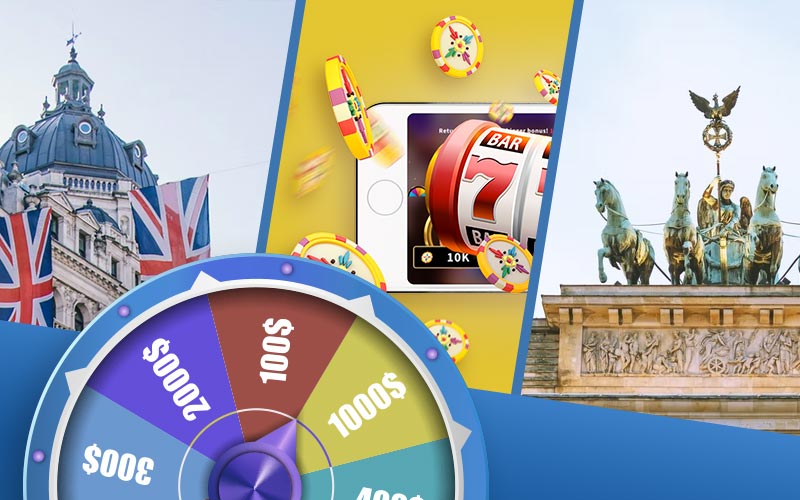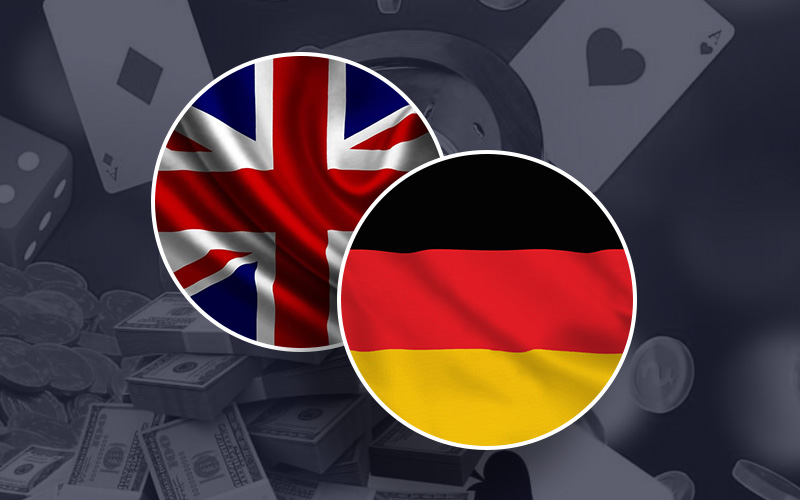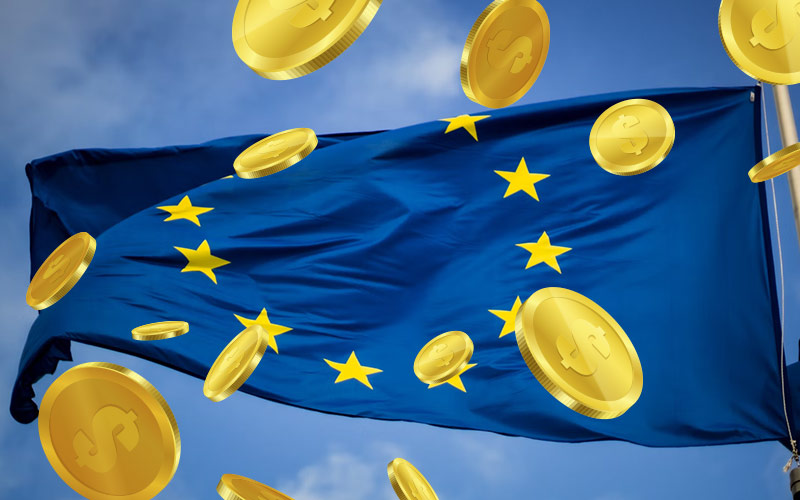Opening a Gambling Business in Europe: The Key Benefits
Aspiring entrepreneurs from all over the world strive to launch their projects in the most money-making markets. The opening of a gambling business in Europe is an ideal solution for operators wishing to reach a wide audience of high-income players and ensure the stability of their projects.

The gambling market in Europe consists of many promising countries. Explore the characteristics of the region as a whole and familiarise yourself with some outstanding states.
An Overview of the Target Region
The gambling business in Europe is actively developing both in the offline and online spaces. iGaming activities are allowed in such countries:
Germany; Norway; Great Britain; Ukraine; Russia; France; Malta, and others.
It is financially beneficial to open a gambling club in Europe. According to experts' calculations, the total GGR of the online industry was about €25 billion (almost $29 billion). The revenues of the gambling market in Europe are mainly formed from the profits of betting companies, online casinos, and virtual lotteries. The profitability of poker clubs made up 6% in the previous year.
The first online casino in this region appeared back in 1996. It was called Europa Casino. The virtual establishment has become incredibly popular in the United Kingdom, Germany, Nederland, Switzerland, and other states.
The gambling market in Europe quickly became one of the largest and most profitable in the world. The modern iGaming industry offers players various relevant entertainments: betting on sports, cultural, and social events, video slots, poker, card games, VR and AR solutions, etc.
The Legislative Regulation of the Entertainment Sector

Is gambling legal in Europe? Yes, but there is no single legislative act that controls the activities of the gaming industry in all countries. Each state establishes its casino laws in Europe. Let us take a look at the juridical features of several important markets.
Great Britain
The UK gambling sphere is well-developed. More than 100,000 people work in the entertainment field in this country. The area's total gross revenue is over £14 billion per year (over $19 billion). A significant part of the profits comes from online casinos’ revenues — about 40%.
The English market is regulated by the Gambling Act (2005). According to the legislative document, managers can obtain a licence in the United Kingdom and start a casino in Europe.
In 2020, the gambling commission made some changes to the local legislation. They touched upon the activities of legal online betting businesses in Europe, as well as the functioning of casino projects. According to the new amendments, operators are required to verify the identity of players more thoroughly using multi-level authentication tools.
Germany
If you want to open a gambling project in Europe and receive good profits, we recommend you to consider this country. Gaming activities in Germany are legalised. The country ranks fourth among European states in terms of the casino industry’s profitability.
The entertainment business is governed by the Interstate Treaty on Gambling. Besides, additional laws are passed separately by each federal state.
The gaming industry is regulated by the following bodies:
Federal Ministry of Finance. Ministry of the Interior and Sports of Hesse. Regional Council of Darmstadt. Ministry of the Interior of Lower Saxony. Tax authorities of Frankfurt am Main and Berlin, etc.
Licences for gambling businesses in Europe are issued by representatives of the federal states. Operators can open gaming or bookmaker establishments in the land-based segment. In addition, it is allowed to launch online projects focused on sports and horse race betting. As a rule, German permits are valid for 10 years. Operators can extend the validity of such documents for the next 5 years.
France
This is another optimal option for operators wishing to open a gambling club in Europe. The population of France is 70 million people. Almost half of the citizens actively use gambling services. The gross revenue of the online industry exceeded €11 billion (almost $13 billion) in the previous year.
The entertainment business in this country is regulated by such bodies as Autorité Nationale des Jeux (ANJ) and the Pari Mutuel Urbain (PMU). The first organisation controls most of the gaming areas. PMU is responsible for horse race betting.
Land-based gaming clubs and casinos can operate under a local licence. Owners of virtual poker clubs can also get French permission documents. Representatives of other gambling spheres working in the virtual segment can provide their services under international licences.
The tax rate depends on the field in which an operator works. The most favourable conditions are provided for online betting businesses. Entrepreneurs from this area must pay 13.8% tax.
Malta
This is one of the most famous and time-tested jurisdictions in the world. It has such advantages:
prestigious status; simple licensing; relevant legislation.
Malta was the first country to legalise online gaming and develop an effective gambling law in Europe (since 2004).
The openness to foreign investors and favourable tax conditions have made this state highly sought after by European operators and businessmen from all over the world.
The Maltese legislature always tries to keep up with the times. Therefore, gambling laws have been updated and improved in 2018.
Malta attracts investors due to the affordable cost of licences — from €25 thousand (about $29 thousand). At the same time, the tax rate is only 5%. These are ideal conditions for entrepreneurs who want to start online gambling projects in Europe.
Denmark
The region is recognised for its liberalised and unobstructed market, which opened its doors to operators in 2012. If you want to launch a casino in Denmark, the governing body Spillemyndigheden will be your destination point. It supervises the sector and oversees full compliance with the established regulations for you to stick to.
Online casinos, sports betting, and poker are all legal for your activity in Denmark. Owners of such projects are subject to a gambling tax rate of 20% on gross gaming revenue. With such obligations in mind and the prosperity of the sphere, the Danish market generated around $1.4 billion in 2022.
If you look for the directives of the local entertainment arena, you should study the Gambling Act and the Executive Orders on Online Casino and Betting. They primarily shape the regulatory framework and specify what operators should be up to. These laws create a secure and competitive environment and protect the interests of consumers.
Sweden
In 2019, the local gambling landscape underwent a significant transformation with the introduction of a reformed regulatory framework. This new system opened the doors to private operators and allowed them to present various forms of entertainment: online casinos, sports betting, poker, and similar activities.
Key aspects of the Swedish gambling ecosystem:
- The established authority Spelinspektionen plays a central role in licensing and monitoring activities within the country.
- The primary regulatory document that governs the niche in Sweden is the Gambling Act.
- Operators are subject to a regular wagering tax rate of 18% on gross gaming revenue.
- In 2022, the Swedish market generated approximately $2.8 billion.
Market participants aim the current course of the sphere development at increasing consumer protection and tax revenue generation as well as maintaining the integrity of the sector.
Norway
The country has one of the strictest gambling regulations in Europe. The state-run Norsk Tipping and Norsk Rikstoto hold a monopoly on most forms of wagering. While it is not possible to receive an official working permit for now, Norwegian operators can target local punters through offshore jurisdictions.
The main regulative documents that govern gambling in Norway:
- the Lottery Act;
- the Gambling Act;
- the Totalisator Act.
The Norwegian Gaming Authority oversees these laws. The organisation ensures that the state monopoly is upheld and enforces strict penalties against unapproved operators.
The latest changes to the Gambling Act in 2021 left several legal aspects open. It implies that in the upcoming future, the possibility of a fully regulated iGaming environment will be reviewed with the chance to get in-state permits.
Portugal
The state boasts a well-adapted and legalised entertainment sector. In 2015, it underwent significant changes and the enactment of a new legal framework. The Regulatory Authority for Online Games (SRIJ) is the governing body which is responsible for licensing and managing operators.
The Gaming Law and the Online Gaming Regime are the primary legislative documents that shape the sector in Portugal. If you want to receive the legal foundation and offer your services, resorting to them to match fair play standards and consumer protection norms is necessary.
Online sports betting, casino games, and poker have been made legal under the established measures. Operators are obliged to cover the tax rate from 8% to 16% of gross gaming revenue, depending on the type of activity offered.
In 2022, the Portuguese gambling market’s revenue reached $860 million. These numbers reflect the steady growth of the entertainment sector since the introduction of the new legal rulings.
The Netherlands
If you plan to initiate your activity in the Dutch region, you should pay attention to the Remote Gambling Act of 2021. The document marked the Dutch entertainment sector with a significant shift towards the liberalisation of related activities. Under the new measures, online casinos and sports betting became officialised completely. As a result, proprietary operators were no longer limited by the state-run monopoly.
Currently, the Netherlands Gambling Authority (Kansspelautoriteit) regulates the online sector. Operators are taxed at a rate of 29.5% on gross revenue, which generates substantial income for the Dutch government.
In the financial year 2022/23 (ending in June), the local market was estimated to be worth around $1.4 billion. The number of users is also quickly improving. With this in mind, it is expected to reach 1.8 million (11%) by 2027, with the current rate at 8.2%.
Finland
The country employs a unique gambling system with a government-owned monopoly.
Three state-run operators hold exclusive rights to most forms of entertainment:
- Veikkaus;
- Fintoto;
- RAY.
The Lotteries Act and the Betting Act are the primary regulatory documents that govern gambling in Finland. They establish the legal framework for the state monopoly and the operation of charitable organisations. These laws aim to balance the need for revenue generation and responsible participation within society.
Online casinos that are not licensed in Finland reach locals through offshore jurisdictions. In 2022, the local entertainment market generated approximately $1.13 billion.
Ordering a Turnkey Casino in Europe: The Strengths of the Service

The considered region offers optimal conditions for starting businesses in many countries. To buy a casino in Europe and get the maximum financial benefit, it is necessary to choose the right strategy for launching an online start-up.
If you want to achieve the most positive result, we recommend you to think about ordering a turnkey casino in Europe.
This service has such advantages:
| The best casino software in Europe | The most prominent companies engaged in the production of entertainment content were founded in Europe. Their solutions are characterised by excellent quality and smooth performance on any device |
| Reliable payment and security programs | By ordering a turnkey solution, you will get high-quality financial and protection casino software in Europe. These program tools will make the functioning of your virtual establishment stable even in unexpected situations |
| Unique design and logo | Professionals will create an original style for your virtual project. An exclusive, memorable logo will let your brand become recognisable and successful |
| Informational and technical support | This is another reason to order a turnkey casino in Europe. Highly qualified consultants will assist you in dealing with any technical difficulties and resolving disputes with clients |
The Main Things about Approaching the Gambling Market in Europe
Working in the considered region will bring lots of financial benefits to an operator with a properly organised strategy.
The European entertainment business has such characteristics:
the high lucrativeness of the online gaming industry; many legal markets with well-thought-out legislation; work under local and offshore permission documents.
Our company offers numerous solutions for representatives of the entertainment business: the best casino software in Europe, turnkey projects, reliable security systems, modern payment modules, assistance in licensing, informational support, and others. Find out more about the desired services by contacting our managers.
- e-mail: info@2wpower.com
- Telegram: @Win2Power
Please be careful! We have noticed that scammers are using our contact details to deceive customers.
For security reasons, please use only the contact information provided on the page https://2wpower.com/en/feedback
Our company is not responsible for the actions of fraudsters.








 Germany
Germany  Great Britain
Great Britain  Norway
Norway  Sweden
Sweden  Portugal
Portugal  Denmark
Denmark  The Netherlands
The Netherlands  Finland
Finland 

 DEMO
DEMO 



